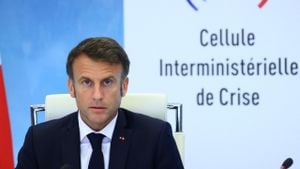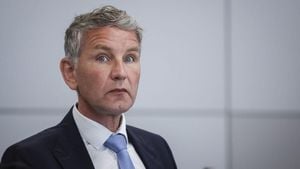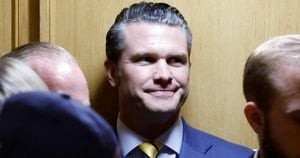Donald Trump's recent ascent to power as President of the United States raises echoes of his previous administration and promises significant shifts in U.S. foreign policy—particularly concerning the turbulent situation in Ukraine. Both the resolution of the war and relations with Russia could take center stage as the new administration crafts its approach to this complex geopolitical issue.
One of the key players poised to influence Trump's Ukraine policy is going to be General Keith Kellogg, whom Trump has selected as his Special Envoy for Ukraine and Russia. Kellogg has already outlined his views on the matter, positioning the war as an “avoidable crisis,” which he attributes to the “incompetent policies” of the Biden Administration. Critics warn, though, of the risks associated with his proposed strategy, which advocates for freezing frontlines and compelling negotiations between Ukraine and Russia. Proponents fear this will usher in another fractious period, opening the door for Russia to potentially annex more Ukrainian territory amid weakened defenses.
Russia's President Vladimir Putin will undoubtedly be listening closely. Analysts say Trump’s strong stance may be deeply intimidating to him—enough to make him receptive to serious discussions aimed at halting the conflict. Insiders close to Trump suggest he might use the presence of American military support as leverage against both Putin and Ukrainian President Volodymyr Zelensky. If Putin fails to comply, Trump could threaten increased military aid for Ukraine, which would bolster their efforts against Russian advances. Conversely, he might dangle more support for Zelensky to entice him to negotiate terms favorable to the U.S. and its interests.
Although Trump has signaled intentions to pull the U.S. back from its current commitment to Ukraine, he suggests his approach will incorporate military backing to Ukraine—albeit under different conditions. If Zelensky resists ceding territory to Russia and continues to push for immediate NATO membership, Trump’s administration could threaten to reduce or eliminate military support from the U.S. While Zelensky has maintained a hardline against Russian territorial gains, recent comments indicate he might back down slightly if it expedites peace.
But here's where it gets complicated: Putin has other plans. Reports indicate he is not rushing to the negotiating table. Some analysts argue he may even seek additional territorial gains before engaging seriously. Current estimates suggest Russian forces control around 20 percent of Ukraine, and their advances have been gaining ground recently, posing severe challenges for Ukrainian defenses. This leaves Zelensky with few options.
The Ukrainian leader has hinted at potentially accepting terms to stop the war, allowing for the hope of reclaiming territory later through diplomatic means—an approach he previously rejected. Ukraine’s ambitions of NATO membership still loom large, which, according to grievances aired by Russia, is non-negotiable. This complicated interplay requires substantial diplomacy, and though neither party appears ready to shift their positions significantly, the change of power within the U.S. might add pressure.
Kazakhstan has surfaced as another potential mediator, praised for its historical role as neutral ground for negotiations between conflicting parties. Its reputation stems from having helped facilitate discussions during the complex geopolitical maneuvering of the past. With its strategic positioning and diplomatic history, analysts see Kazakhstan as well suited to host talks between Trump and Putin, should such discussions materialize.
Trump's proposed strategies seem to fluctuate between hardline tactics and diplomatic overtures, perpetuating what some call a “carrot and stick” approach. This method involves incentivizing compliance among both leaders whilst threatening escalated military support as leverage. Trump also faces challenges as he needs the cooperation of Congress and various allies to shape foreign policy effectively.
While some argue this approach may be risky, as it walks the line between coaxing peace and igniting conflicts, it seems clear Trump is determined to take a more assertive stance compared to the Biden Administration. If he executes his strategies effectively, he may just be able to bring a shift to the current dynamics—not only for Ukraine, but potentially for U.S.-Russia relations as well.
Despite the uncertainties surrounding these developments, the upcoming formulation of Trump’s Ukraine policy bears scrutiny. Changes not only affect American foreign policy but have rippling effects felt across global geopolitical landscapes. The situation necessitates careful navigation, and how the new administration tackles this colossal challenge will be pivotal not just for the region, but for international stability.



